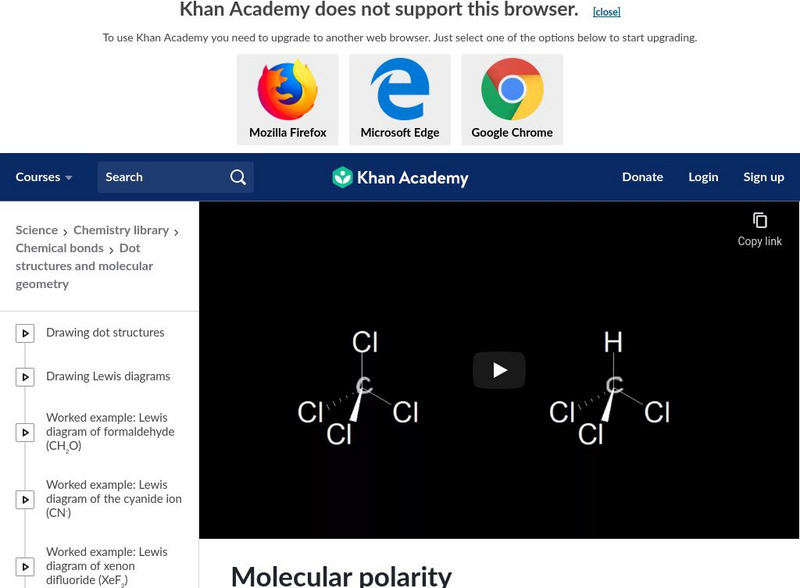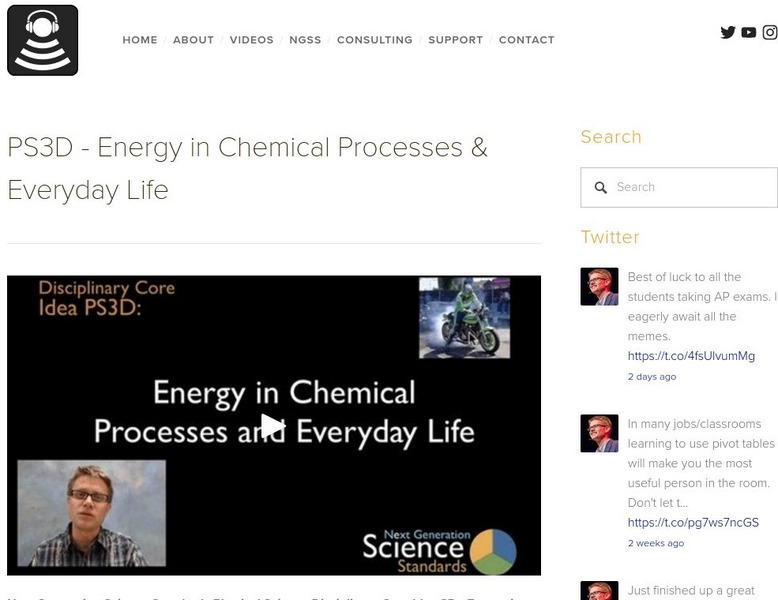Bozeman Science
PS3D - Energy in Chemical Processes and Everyday Life
In this video Paul Andersen explains how energy is used in chemical processes and everyday life. Students should understand that energy is neither created or destroyed but is converted. Most of the energy is delivered to our planet from...
Crash Course
The History of Chemical Engineering: Crash Course Engineering #5
Today we’ll cover the fourth and final of our core disciplines of engineering: chemical engineering. We’ll talk about its history and evolution going from soda ash competitions to oil refineries and renewable energies. We’ll also discuss...
TED Talks
TED: Dreams and details for a decarbonized future | Jim Hagemann Snabe
As chairman of the world's largest maritime shipping company, Jim Hagemann Snabe thinks a lot about how goods get where they need to go and the impact their journey has on the planet. Leading the effort to decarbonize shipping by 2050,...
Wonderscape
From Sunlight to Snack: The Energy Journey in the Animal Kingdom
Dive into the world of consumers in the energy cycle, exploring how animals, including humans, derive their energy from plants and other animals. This video explains the process of digestion, metabolism, and the role of nutrients like...
FuseSchool
How To Harden Vegetable Oils Through Hydrogenation
Learn how to harden vegetable oils through a chemical process demonstrated on the example of Margarine.
FuseSchool
Green Chemistry - Principle 4
Learn the basics about the principles of green chemistry as part of the environmental chemistry topic.
FuseSchool
What Types of Chemical Industries Are There
Learn the basics about different types of chemical industries, from agriculture to pharmaceutical to energy, and many other uses. In this video, we consider the environmental impact caused by a range of different types of chemical...
NASA
Houston We Have a Podcast: Packing for Mars
Chel Stromgren, Chief Scientist of Binera, Inc. and part of NASA’s Mars Integration Group, lays out the complexities and the innovative strategies needed to pack for a human mission to Mars on this fifth episode of our Mars Monthly...
FuseSchool
Green Chemistry - Principle 5
Learn the basics about the principles of green chemistry as part of the environmental chemistry topic.
Mazz Media
Biochemistry
This live-action video program is about the word Biochemistry. The program is designed to reinforce and support a student's comprehension and retention of the word Biochemistry through use of video footage, photographs, diagrams and...
Wonderscape
Science Kids: Matter and Energy in Organisms and Ecosystems
This video explores the concepts of matter and energy in organisms and ecosystems. It explains how food provides energy for organisms, how plants use photosynthesis to convert sunlight into glucose, and how consumers obtain energy by...
Curated Video
RR0216/C UK/Netherlands: Near Death
London, UK (recent): various of Patrick Tierney walking into his living room; sitting; and opening a photograph album; photographs of parents; heart attack survivor Patrick Tierney, sot in English, various exterior shots of outer London...
Khan Academy
Khan Academy: Dipole Moment
Learn how to predict the molecular dipole moment based on the molecular geometry. [9:21]
Khan Academy
Khan Academy: Resolution of Enantiomers
The resource from Khan Academy and the Association of American Medical Colleges provides study content for the MCAT. This resource explains how enantiomers can be isolated from a racemic mixture using chromatography with a chiral...
Khan Academy
Khan Academy: Carbohydrates Naming and Classification
This video lesson from Khan Academy and the Association of American Medical Colleges provides study content for the MCAT. This resource explains how to name and classify different carbohydrates.
Khan Academy
Khan Academy: Tissue Specific Metabolism and the Metabolic States
Review for the MCAT by watching this video on tissue-specific metabolism and metabolic states. [12:28]
Bozeman Science
Bozeman Science: Energy in Chemical Processes & Everyday Life
In this video, Paul Andersen explains how energy is used in chemical processes and everyday life. Students should understand that energy is neither created or destroyed but is converted. Most of the energy is delivered to our planet from...





